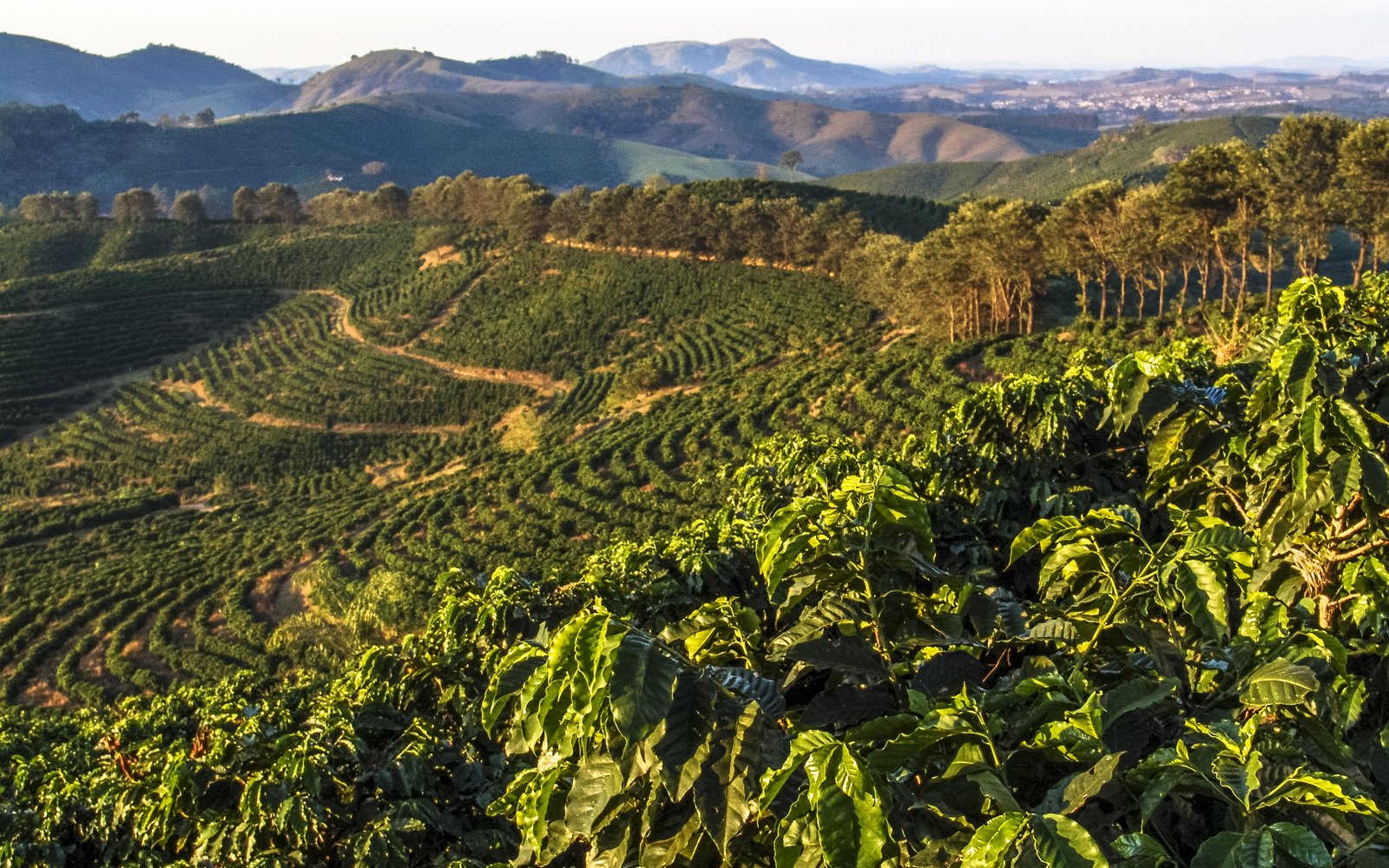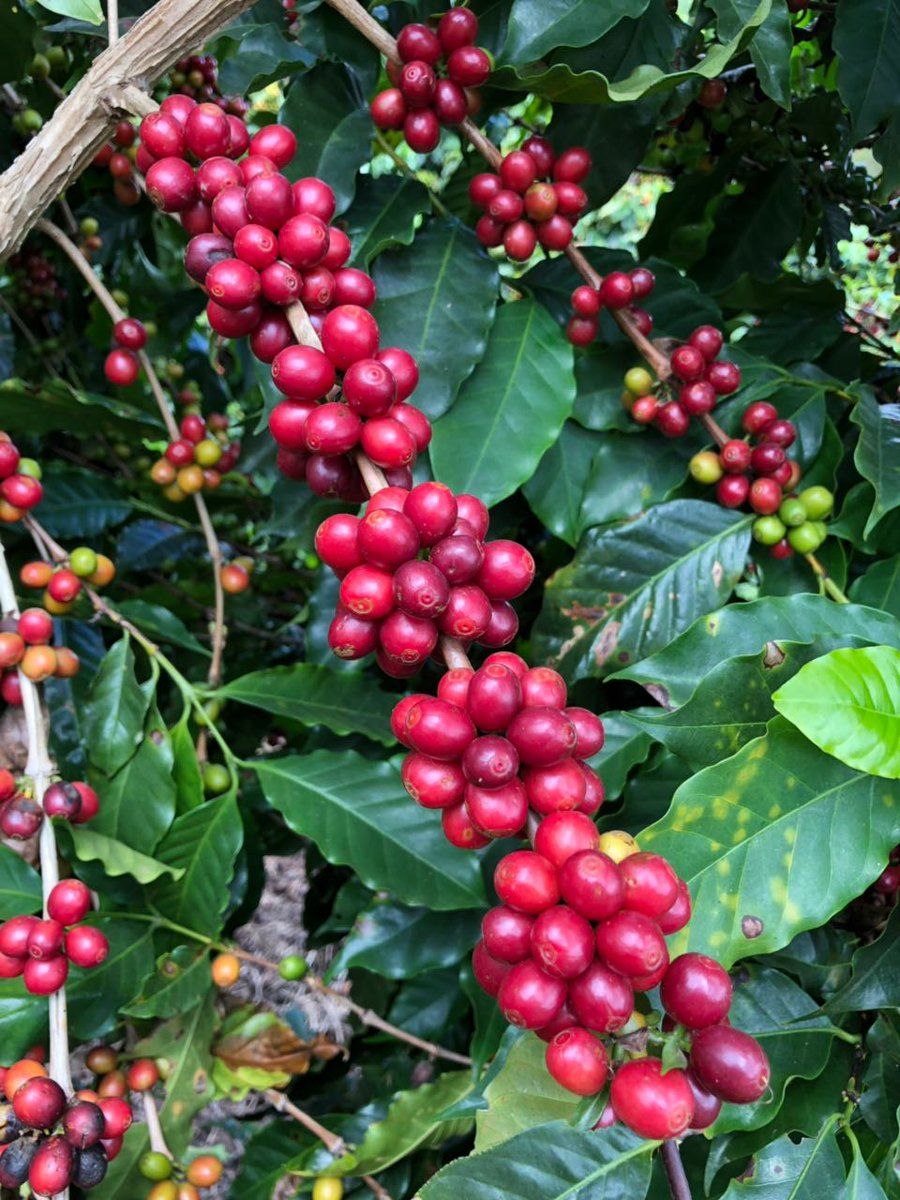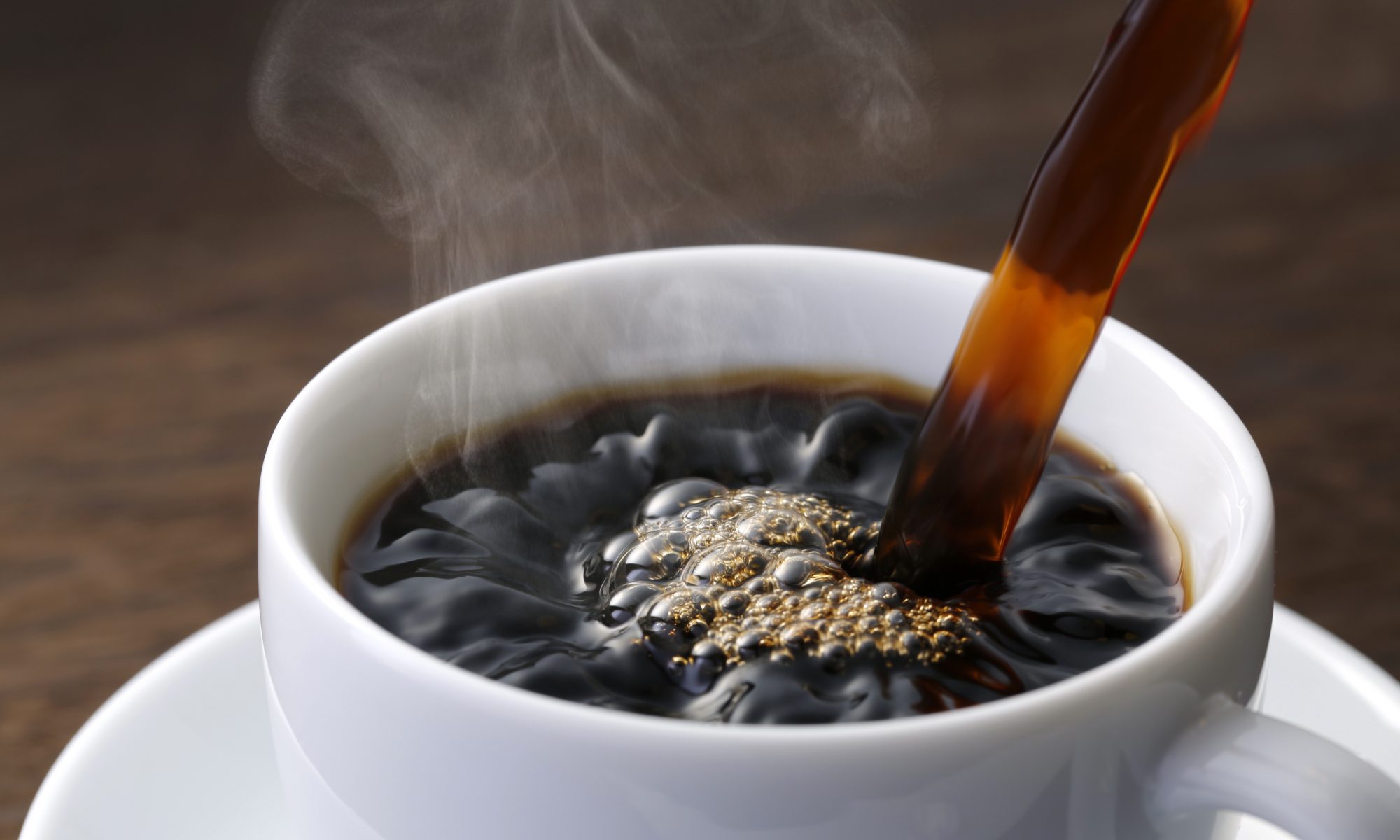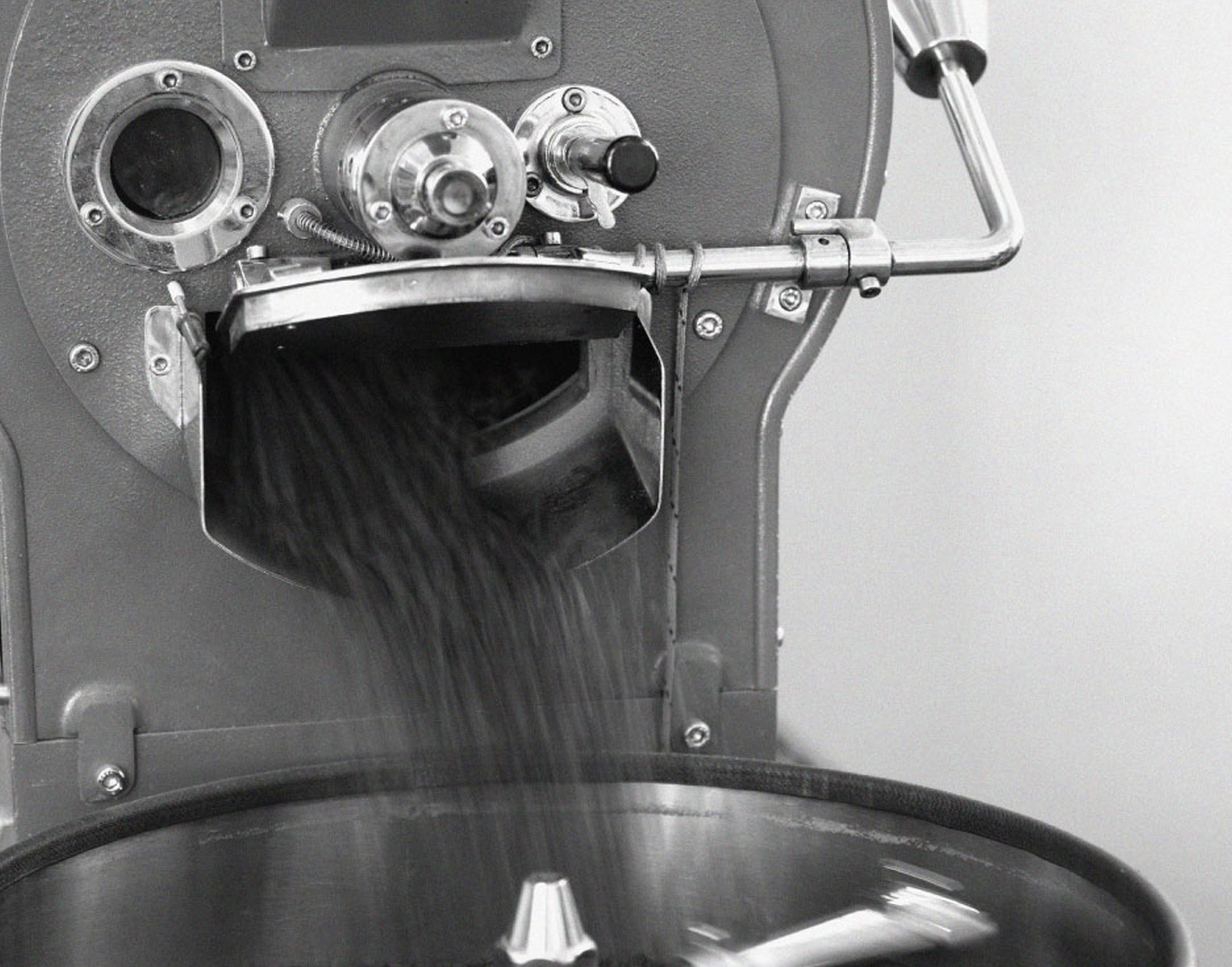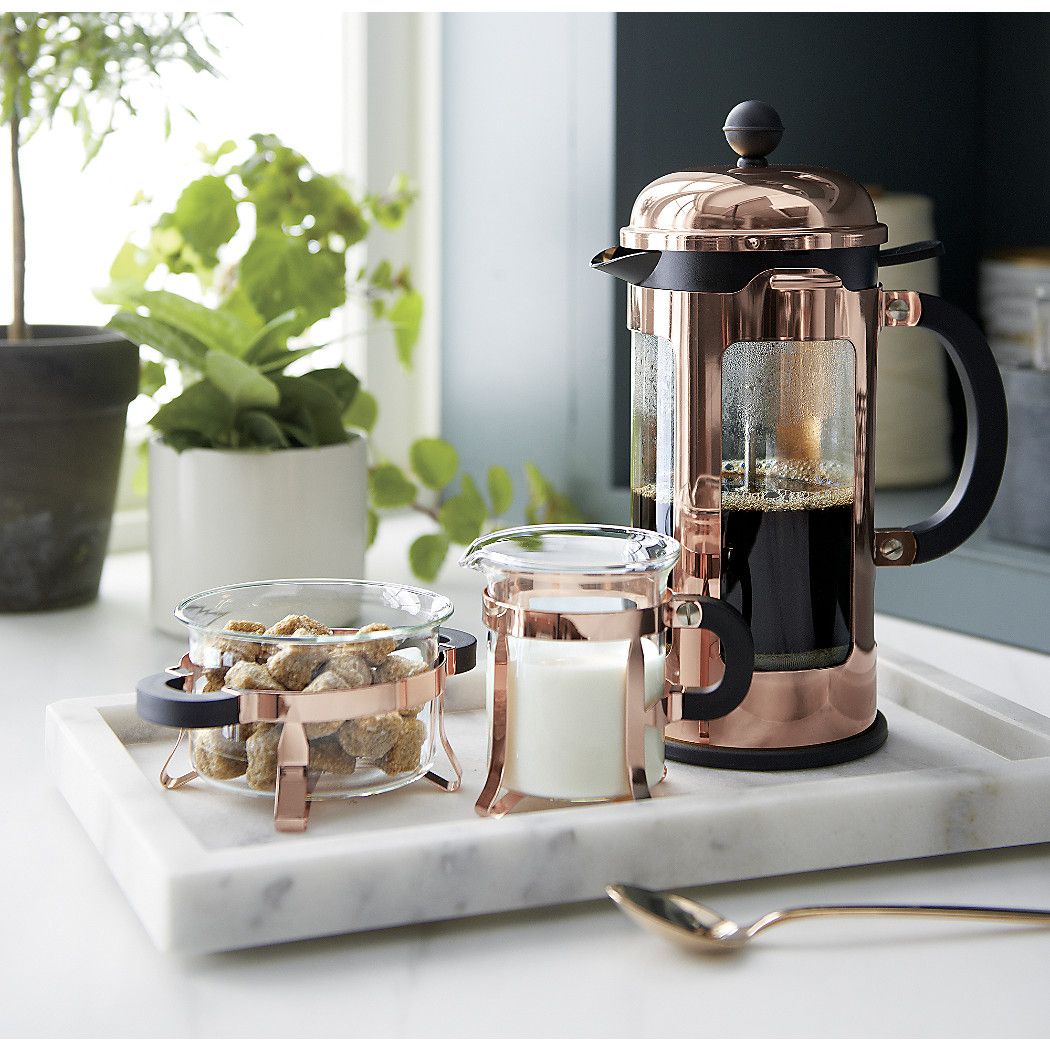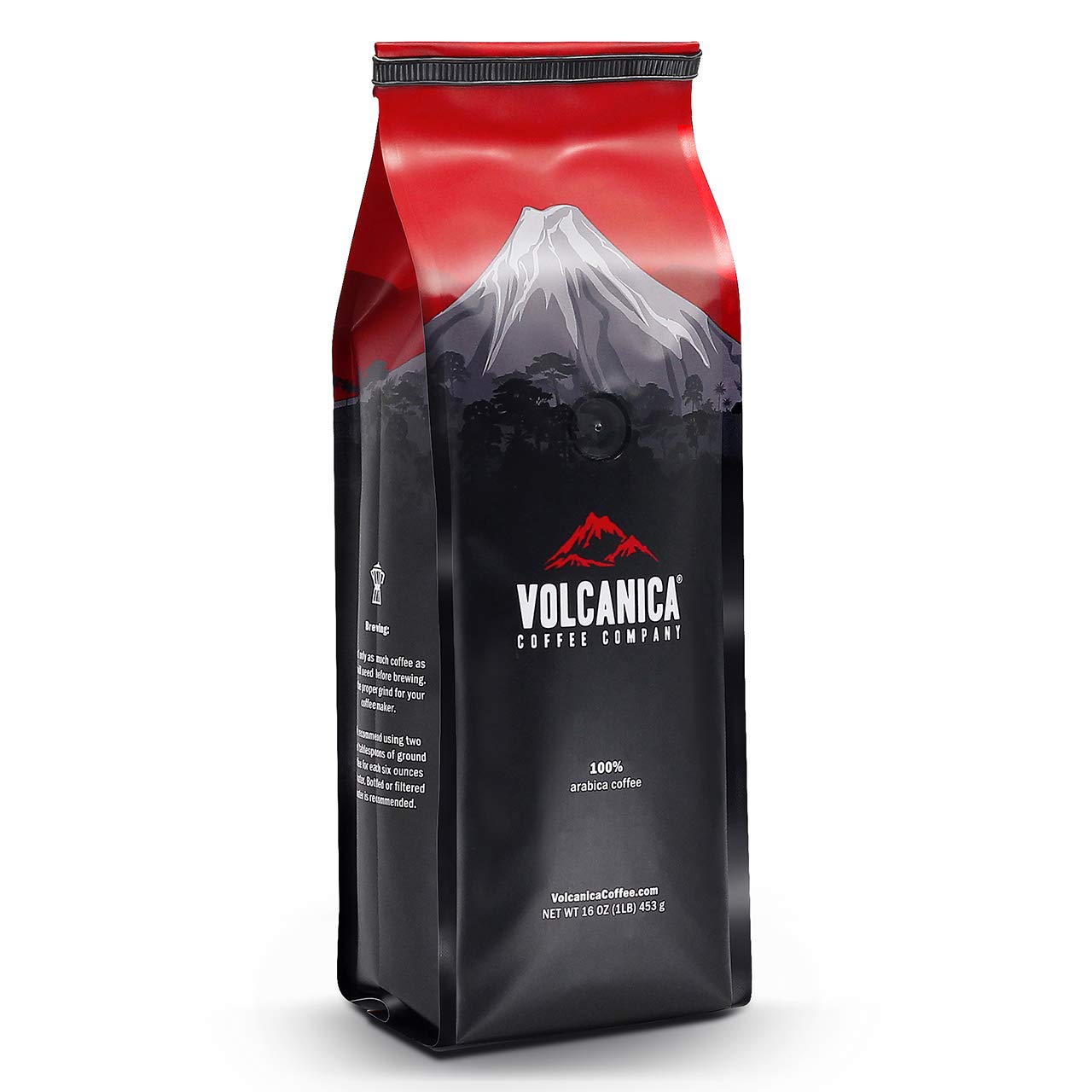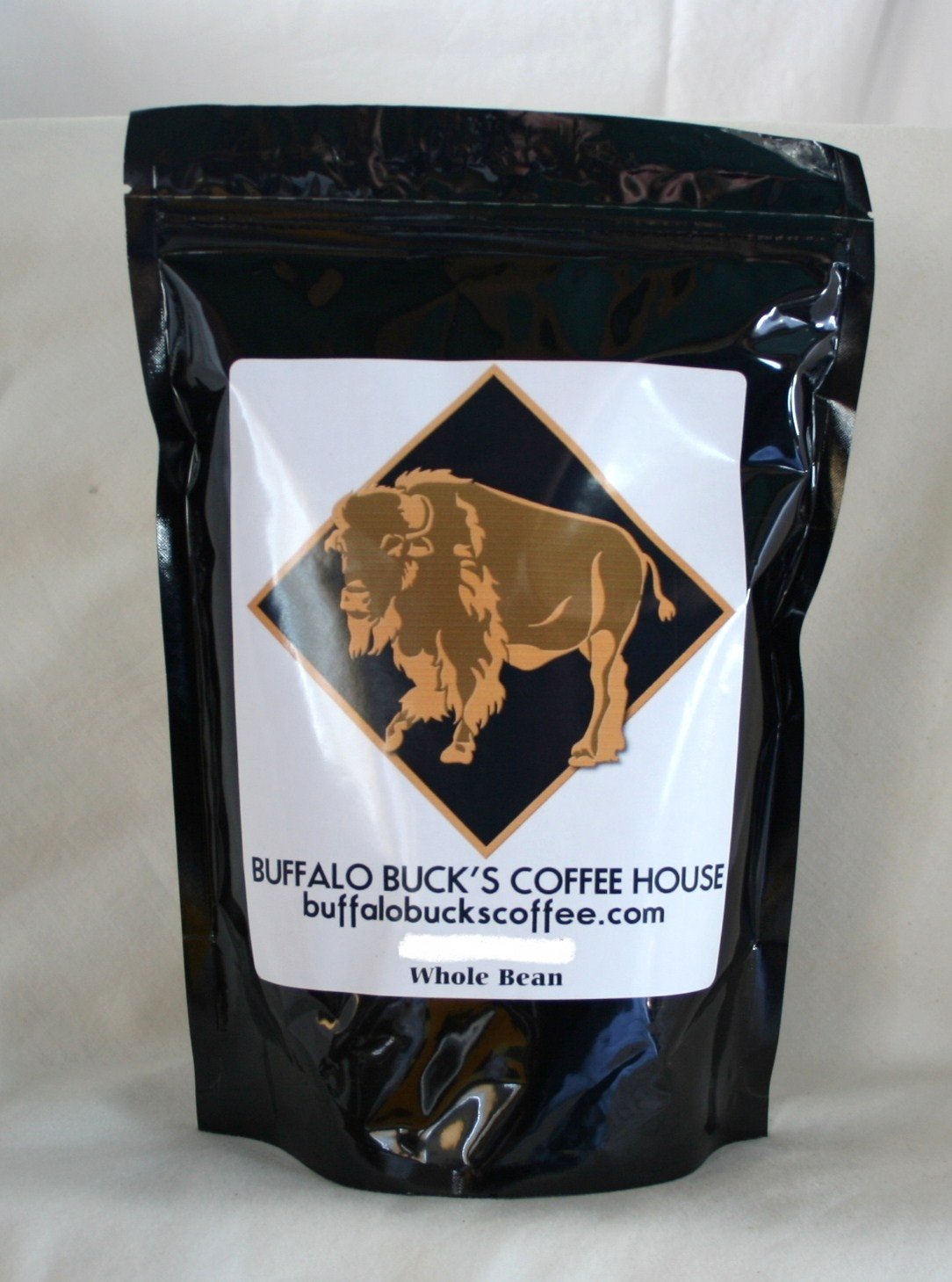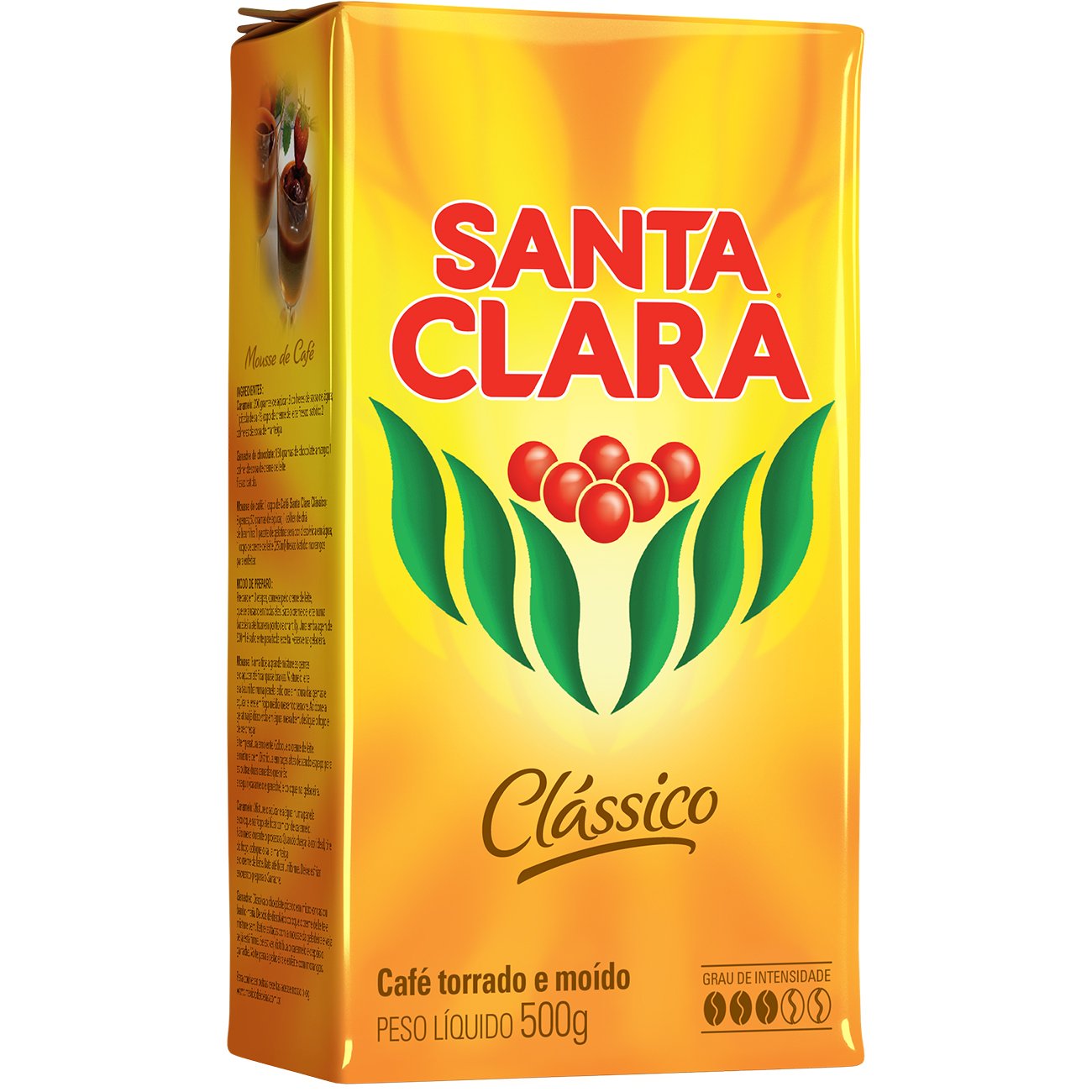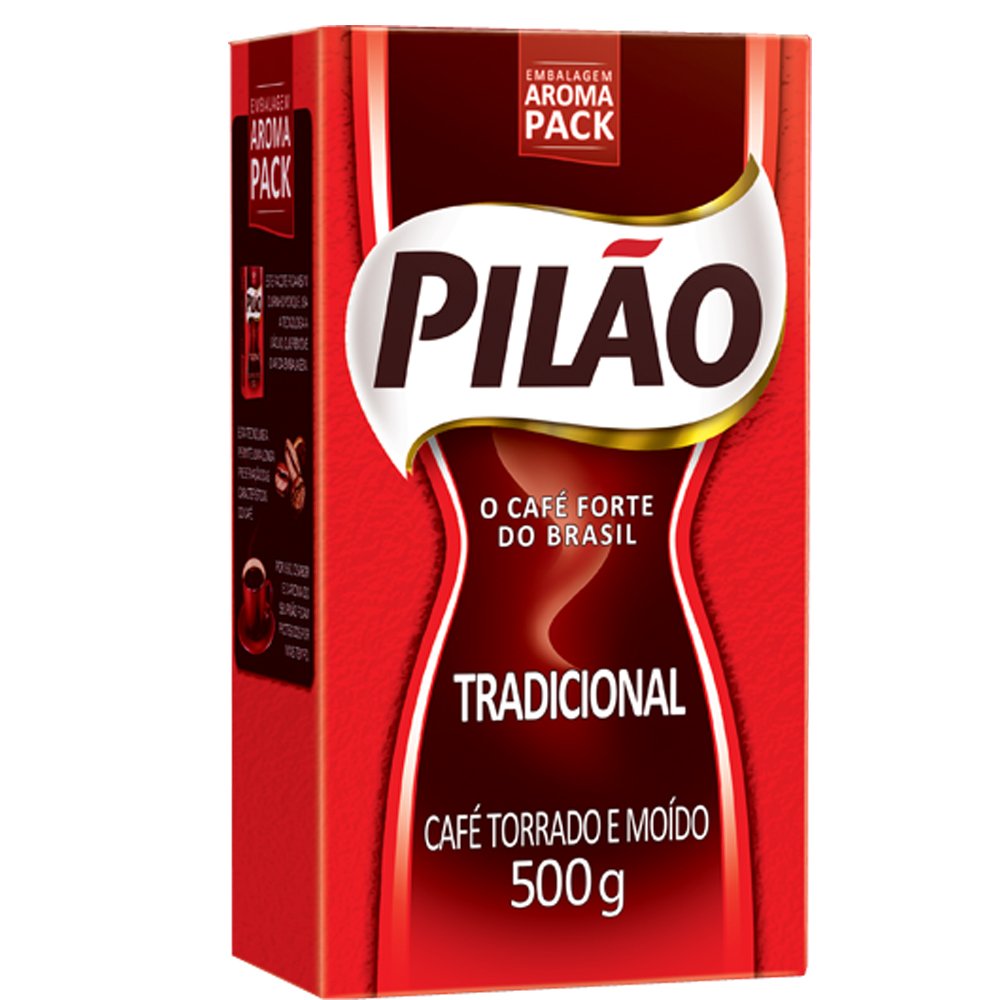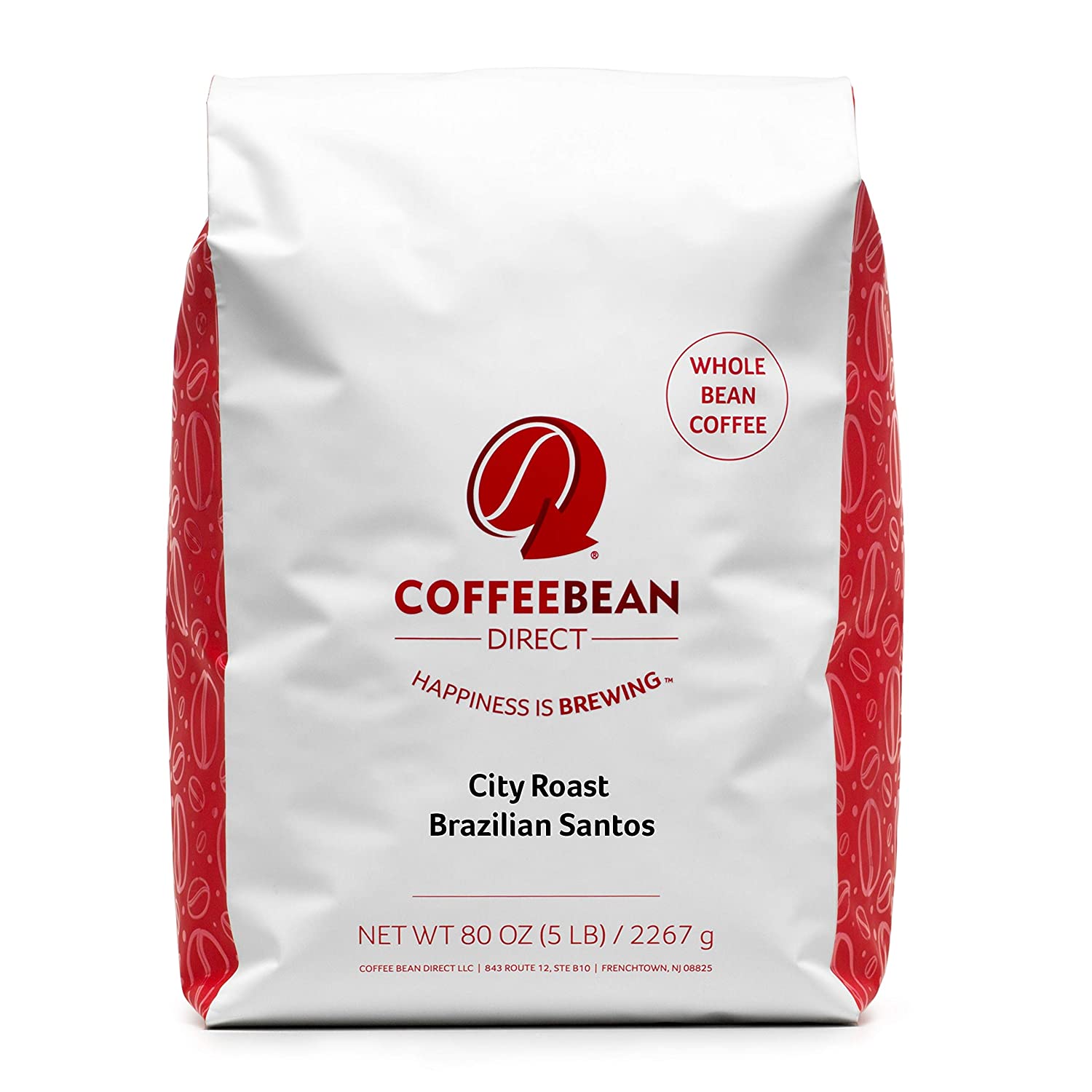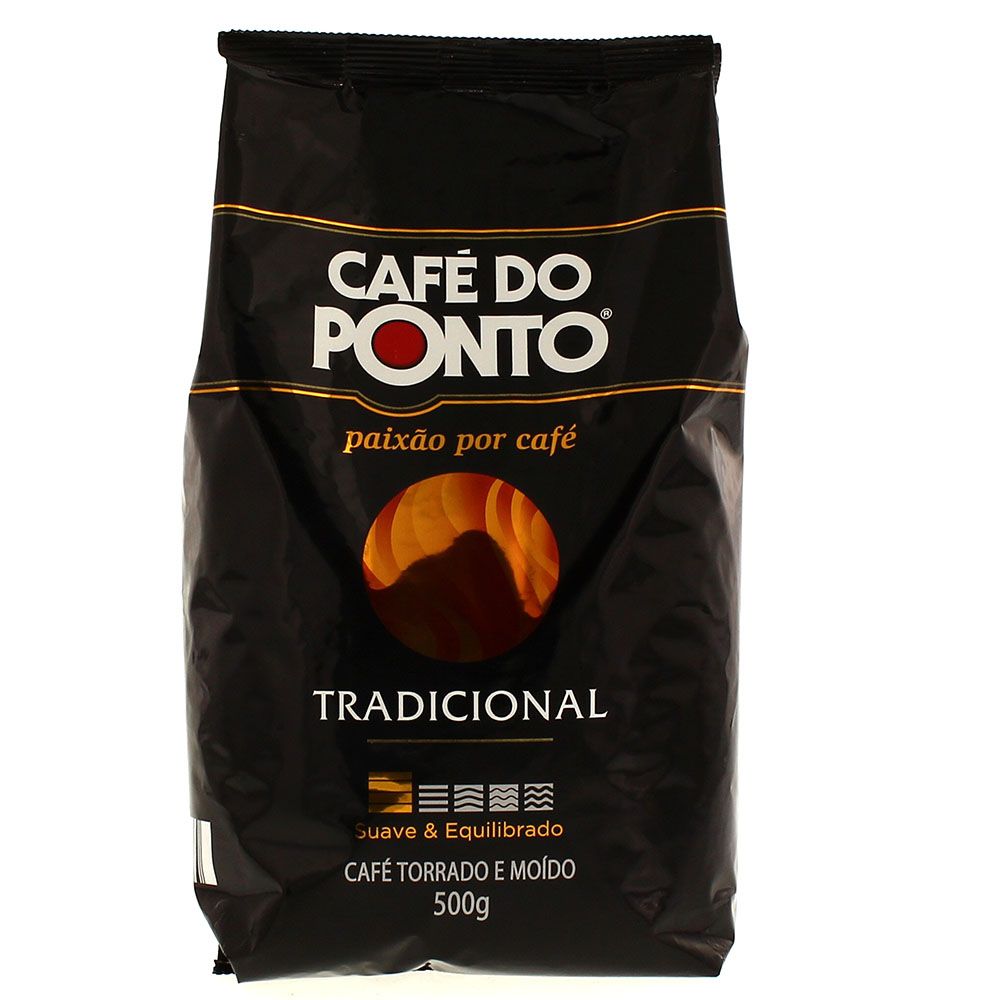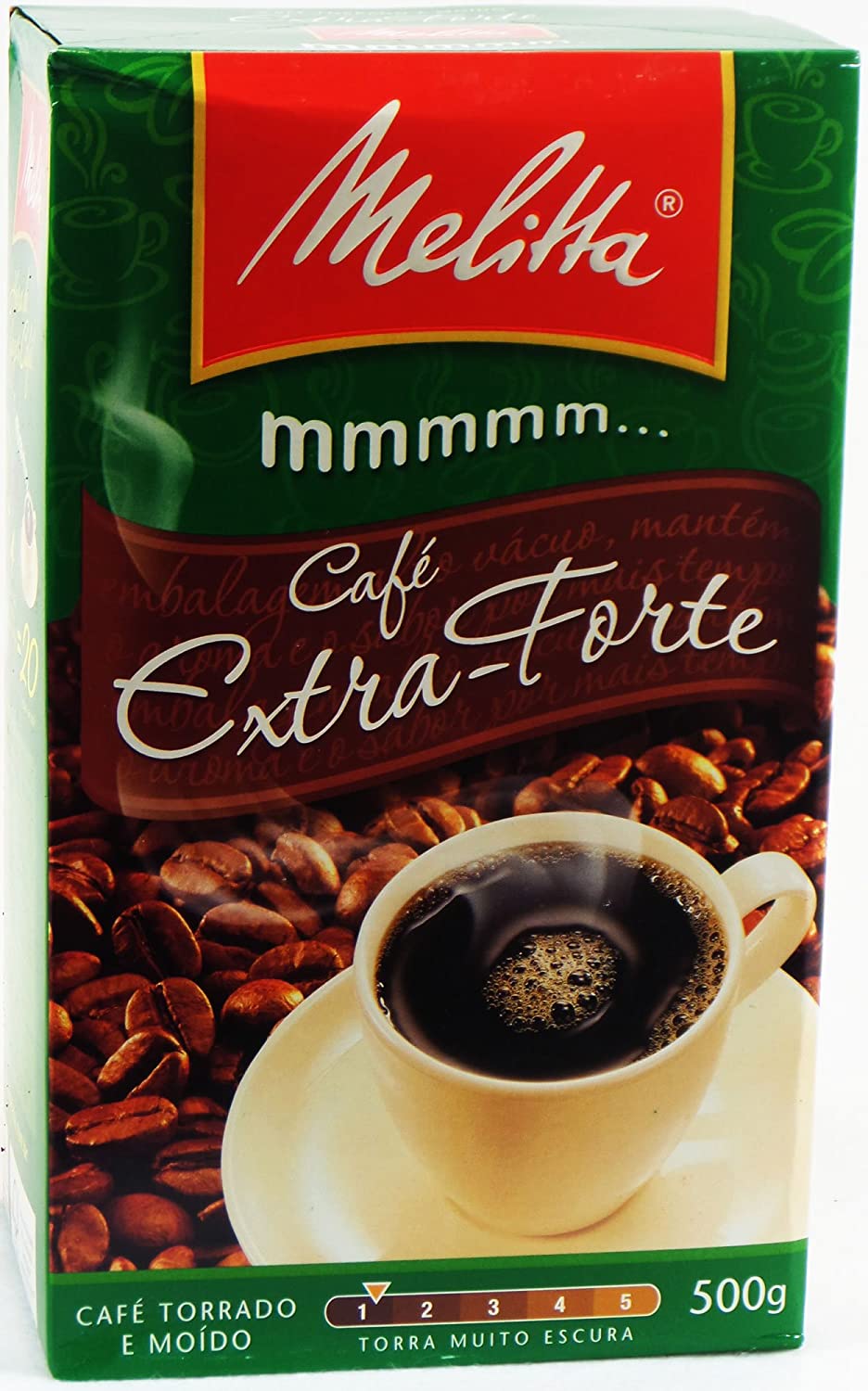No worries if you do not have the chance to be a world traveler. Take your palate on a tour by trying Brazilian coffee. It is famous among drinkers for its rich body, mellow flavor, and nice chocolate notes.
Moreover, Brazil is the biggest coffee producing country. In addition to being the global leading grower, it becomes the largest exporter of the beans. Many premium espresso blends have Bourbon Santos in them.
Read on to learn about Brazil’s coffee history, facts, variety, and brewing method. We also have rounded up the best brands. This article will explain the present and future state of the industry, too.
Contents
- 1 Brazilian Coffee History
- 2 Brazilian Coffee Facts
- 3 Brazilian Coffee Regions
- 4 Brazilian Coffee Flavor Characteristics
- 5 Brazilian Coffee: The State of Coffee Industry in Brazil
- 6 The Best Brewing Methods for Brazilian Coffee
- 7 Best Brazilian Coffee Brands
- 7.1 Volcanica Brazilian Peaberry Coffee
- 7.2 Buffalo Buck’s Brazil Santos Coffee Beans
- 7.3 Classico Brazilian Coffee by Santa Clara
- 7.4 Ferris Coffee Brazil Primavera
- 7.5 Cafe Pilao Tradicional
- 7.6 Coffee Bean Direct Brazilian Santos
- 7.7 Brazilian Coffee Product: Cafe Do Ponto
- 7.8 Brazilian Coffee Product: Extra Strong Coffee by Cafe Melitta
Brazilian Coffee History
Coffee is not from the Americas. It got its start in 1727 when Fransisco de Melo Palheta set the plant into the soil. The story itself starts with an interesting tale that involves Guiana’s governor’s wife and Brazilian lieutenant.
Portuguese wanted to enter the coffee market. However, French Guiana’s governor seemed to be uncooperative. He refused to trade the seeds. Then, Palheta was sent on a special diplomatic mission.
Palheta successfully wooed the wife of the governor. He secretly received some coveted seeds in a flower bouquet. Then, they were brought to Brazil without any difficulty.
The Haitian revolution caused the burning of coffee plantations. This lets Brazil accommodate the world’s demand. Moreover, that commodity also contributed 40% of its total exports by the 1840s.
Brazil had provided 80% of global production and dominated the coffee market by the 1920s. The country’s export declined by 20% in the last half 20th century. Now, it still claims to be the leading coffee producer.
Brazilian Coffee Facts
The Largest Coffee Producer
Brazil is the biggest coffee grower. In 2016, it produced about 2,595,000 metric tons or 7.26 billion pounds of the beans. The country is also controlling one-third of the world’s production.
Complex Coffee Classification System
Unlike other coffee-producing countries, Brazil has a very detailed classification system. The country ranks the beans based on color, flavor, and size. Their ranks are rio zona, rio, riada, hard, softish, soft, and strictly soft.
Arabica and Robusta Grower
Since Brazil has consistent temperate weather with moderate rain and sunlight, the country can produce both Arabica and Robusta coffee beans.
Lots of Coffee Plantations
In Brazil, around 20,000 coffee farms cover 10,000 square miles of the total landmass. The plants are typically grown on the mountainside plantations.
A Long Harvesting Season
The Brazilian coffee beans are normally harvested from May to September. Additionally, the lower elevations allow the farms to grow the plants faster.
Vulnerable to Frost
Vietnam and Ethiopia are the other two coffee major producers. Unlike them, Brazil’s plantations are prone to frost.
Brazilian Coffee Regions
When it comes to Brazilian coffee, you cannot forget the growing areas in the country. There are 14 regions distributed between seven states such as Bahia, Sao Paulo, Minas Gerais, Parana, Rio de Janeiro, Espirito Santo, and Rondonia.
The Minas Gerais’ regions contribute 50% of Brazil’s total production. Excellent Brazilian coffee beans are from Sul de Minas, Cerrado, Mogiana, and Matas de Minas.
Moreover, Brazil Santos is a famous specialty coffee. The name itself comes from the nation’s port in Sao Paulo. Espirito Santo becomes the second largest growing region after Minas Gerais. It mostly produces Robusta.
Cerrado is one of the most promising producing regions. Since it nestles on the high plateau, its weather is both dry and clear, especially during the harvesting season. This enables farmers to produce quality coffee beans.
Lastly, Mogiana has rich soil. This growing condition causes the plants to produce balanced as well as full-bodied coffee beans.
Brazilian Coffee Flavor Characteristics
Now, for the flavor profile, Brazilian coffee beans tend to have low acidity. They also have a smooth, rich body with nutty-chocolatey tastes. These widely range from bittersweet cocoa to milk chocolate.
Furthermore, coffees from Brazil normally exhibit caramel notes. The drinkers can taste their pleasant sweetness, too.
The high-end Brazilian coffees are typically produced by regions with higher growing elevations. They even can offer bright, fruity characteristics and mild citrus notes at the same time.
Brazilian Coffee: The State of Coffee Industry in Brazil
Brazil is focusing on the improvements in both coffee processing and cultivation practices. Another of its recent effort is investing in advanced technologies. They are used to boost farms’ quality and efficiency.
Furthermore, the Brazilian government is trying to rebrand Brazil as the gourmet coffee producer. They are taking action to change the world’s perception of the nation.
Some Brazilian coffee beans have Fair Trade and organic certifications. Brazil is currently putting sustainability into consideration. The farmers are adapting and enhancing their farming methods, too.
Brazil is ensuring the coffee growers are well-paid, cared for, and received lots of opportunities. Even though the industry is facing many obstacles, the Brazilian government is continuously allocating their money and time for it.
The Best Brewing Methods for Brazilian Coffee
As we explained earlier, Brazilian coffee beans are not only low in acidity but also provide toasted nut and chocolate notes. Below are three diverse means to enjoy them.
French Press
This method is great for brewing full-bodied beans. Since French press requires a long steep, it goes nicely with mildly acidic coffee.
Brazilian coffee beans are slightly acidic, so they can sit for about 5 minutes in the water without being muddy and unpleasantly sour. The French press helps highlight their notes of sweet chocolate.
Cold Brew
Without a doubt, Brazilian coffee makes tasty cold brew, thanks to its mild flavor. Using this method, it can be smooth and tastefully refreshing.
Espresso
Brazilian coffee beans are used as the fillers in almost every blend. That is why you cannot go wrong with this method.
The ambiguous profile and full body of Brazilian coffee blend well with the brighter and light-bodied beans. This combination generates a perfect espresso shot.
Best Brazilian Coffee Brands
Brazil mostly produces Arabica beans. They are typically low-grade. In case you are looking for some great quality Brazilian coffees, check these brands out.
Volcanica Brazilian Peaberry Coffee
This Brazilian peaberry coffee is a high-quality one. It has a sweet hazelnutty flavor and raspberry notes. Since the product features medium roast beans, the drinkers will get a smooth, balanced cup for sure.
Moreover, Volcanica’s full-bodied peaberry coffee offers an intense aroma and low to medium acidity.
Lastly, the company got a Rainforest Alliance certification; they are continuously practicing sustainable farming.
Buffalo Buck’s Brazil Santos Coffee Beans
Buffalo Buck’s sources of medium roast Arabica beans are from Cerrado. As you see, this product has a Brazil Santos label. That means it is a deluxe gourmet coffee.
Price-wise, the coffee is probably more expensive than other options, but the amazing aroma and incredibly smooth feel of it make the product worth buying. It provides a chocolatey to fruity flavor, consistent brew, and medium body, too.
Classico Brazilian Coffee by Santa Clara
This traditional blend ensures the drinkers a wonderful sensorial experience. In addition to that, it delivers a rich coffee with an authentic feel and balanced body.
Classico coffee of Santa Clara not only is good quality but also certified organic. Their beans will give any brew some freshness as well.
Ferris Coffee Brazil Primavera
Ferris Coffee is one of the most leading roasters. They are continuously seeking out high-quality beans around the world.
Speaking of their Brazilian beans, Brazil Primavera is a good bet. They are naturally processed and sourced from a sustainable farm. The coffee has sweet citrus notes, too.
Cafe Pilao Tradicional
As the name suggests, this coffee gives you a traditional Brazilian flavor profile. It makes both subtle and humble brew due to its light body.
Moreover, the coffee creates a smooth taste with fermented fruit notes. Cafe Pilao itself is the number 1 brand in Brazil.
Another brand that generates a classic Brazilian vibe is Cafe Caboclo. Natives consider it a go-to coffee.
Coffee Bean Direct Brazilian Santos
If you are on the hunt for Brazilian Santos, these whole beans by Coffee Bean Direct are worth to try.
The roaster imports them from companies in Brazil.
The coffee is a city roast. It has a smooth flavor and gentle character with a low, creamy body.
Additionally, the product generates malty, nutty profile and hints of cinnamon at once.
Brazilian Coffee Product: Cafe Do Ponto
For you who desire coffee from a Brazilian brand, opt for Cafe Do Ponto. Their beans are grown by farms in Minas Gerais and Sao Paulo.
Moreover, their ground coffee is medium roasted. It does not only make an outstanding blend but also develops a smooth finish and strong flavor.
Brazilian Coffee Product: Extra Strong Coffee by Cafe Melitta
If you love dark roasted beans, give this Extra Strong Coffee from Cafe Melitta a chance. It offers a distinctly vibrant brew with a rich aroma. The brand itself is famous for its quality joe.
In essence, Brazilian coffee is both popular and versatile. It has a mild flavor as well as unique characteristics, too. Although most Brazil’s beans are low quality, you can still get the premium ones, so do not hesitate to give those brands a go.

